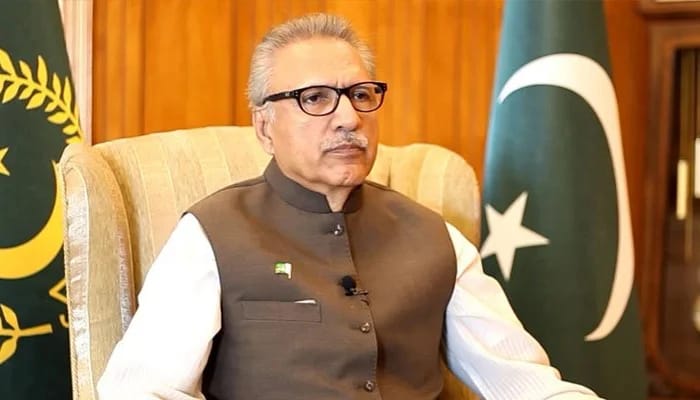In a bold move that has sparked a political and legal showdown, Pakistan’s President Arif Alvi has adamantly denied giving his approval to two contentious bills designed to augment the military’s authority. The bills, which have ignited heated debates both in the National Assembly and across the nation, are embroiled in controversy due to their potential infringement on freedom of expression and their implications for national security. President Alvi’s decision not to endorse these bills has intensified a power struggle between different branches of the government, raising critical questions about the legislative process and the safeguarding of democratic principles.
President Alvi’s Bold Denial and Its Implications
In a surprising announcement via X (formerly known as Twitter), President Arif Alvi declared on Sunday that he had returned the two controversial bills unsigned. He alleged that his staff had “undermined my will,” implying a breach of his authority. This act by the President casts doubt on the legitimacy of the laws, as his refusal to assent could potentially challenge the very legality of the bills. The bills in question criminalize the disclosure of military intelligence officers’ identities and introduce penalties for defaming the army, triggering concerns about their impact on freedom of speech and the right to criticize state institutions.
Legal Tug-of-War: Constitutionality and Parliamentary Process
Pakistan’s interim Law Minister, Ahmed Irfan Aslam, countered President Alvi’s assertion, asserting that under the country’s constitution, the President can either approve the bills or refer them to parliament with specific observations. He accused President Alvi of intentionally delaying his assent and returning the bills without either approval or observations. This maneuver, according to Mr. Aslam, automatically turned the bills into law since they had not been signed even after ten days. A gazette from the Senate Secretariat also affirmed this stance, stating that the bills were “deemed to have been assented to by the President.” The legal clash between the executive and legislative branches now raises questions about the balance of power and adherence to democratic norms.
Opposition Uproar and Impacts on National Security Legislation
The contested bills had previously triggered fierce debates in the National Assembly, leading to criticism from both the opposition party, Pakistan Tehreek-e-Insaf (PTI), and coalition partners of the ruling party, Pakistan Muslim League Nawaz (PML-N). The PTI and PML-N accused the government of enacting these laws hastily and without adequate discussion. The bills have already been wielded to detain opposition members, with the PTI’s Vice Chair, Shah Mehmood Qureshi, arrested for allegedly leaking classified information. The opposition claims he was targeted for challenging the election postponement. The opposition’s strong reactions and the ongoing legal challenges could shape the future landscape of national security legislation.
As President Alvi’s refusal to give assent to the controversial bills reverberates through Pakistan’s political landscape, the clash between different branches of government intensifies. This move, coupled with allegations of intentional delays and constitutional interpretations, underscores the delicate balance between democracy and security. The bills’ contested nature and their implications for free speech and dissent also ignite concerns about the country’s commitment to protecting fundamental rights. As the situation unfolds, the nation watches with bated breath, awaiting resolution on this power struggle that could set significant precedents for Pakistan’s governance and democratic processes.















